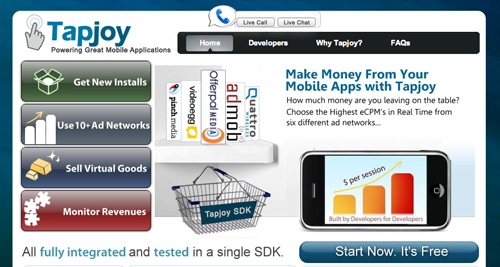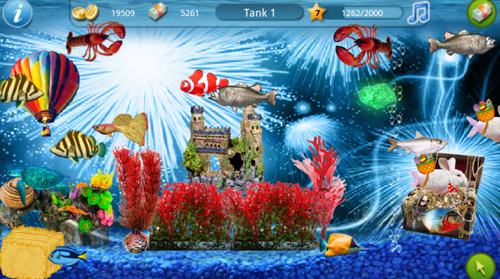苹果限制App Store非自然下载现象或引发七大结果
在苹果本周出台了新政策之后,人们都在观察那些专门制作免费游戏的顶尖开发者们如何应对这一变局。苹果已经开始取缔那些带有推广墙的应用程序,这是一个让用户可以通过下载开发者的应用来赚取虚拟货币奖励的页面。现在苹果公司开始抱怨这种推广墙违背了开发者们的协议,允许一些应用在排名上进行不正当竞争。不过即使这样,苹果至少在去年里一直忍受着这种推广墙的存在。
这个根本的变化将会改变数千个应用获取新用户或盈利的途径,苹果的这个政策对于新兴的免费游戏来说也是个不小的打击。大部分开发者目前还未做出反应,而苹果公司在关于具体的政策改变将如何的问题上,也并不着急与第三方开发者接触,或是讨论哪些细节可以接受,哪些不能。既然季度盈余电话会议已经结束,我们希望苹果平台自身能够显示一些有用的信息。
但我们到目前为止看到的是:
1、苹果似乎打算不断调整政策,而不是做出一锤定音的改变。通过昨天的消息我们能知道,那些在上周末在排行榜中呈现出了不寻常的人气急剧上升的APP又掉回了原位,而这些应用大多是来自像Facebook以及Skype这样的非游戏网络品牌。目前位于前10名的应用里有6个是游戏应用,而其他的都是照片或娱乐软件。这些前10大应用大部分都是新兴起来的应用,不像几天前是那些比较老的,经典的品牌盘踞在排行榜前几名。
一些大型的PPI公司的透露,排名算法好像又回到了上周以前的情况,并再次倾向于下载。但可以清楚的是,上周发生的某些改变让一些特殊类别的APP冲上了排行榜前列。比如Facebook调到了排行榜第一名,虽然他们根本没有发布更新,而且Facebook应用自从09年以来就没有过这么高的排名。今天Facebook应用又回到了第16名的正常水平。而谷歌地球是另一个因前几天变化受益的产品,上周日他们的应用冲到了地图应用分类的第1名,并在总排名里从以往的80到100名之间一下次攀升到第46名。今天谷歌地球应用也掉回了他们的正常水平——74名。
2、部分开发者因苹果政策变化推迟自己的更新计划。有部分开发者准备暂缓他们的更新,静观市场未来几周的变动。总收入位列十大应用之一《僵尸农场》制作者Playforge本计划这个月发布iPad应用,但现在表示发布可能延期。公司将其iPhone应用更新推迟到4月14日,因而Playforge在发布新iPhone应用更新前有足够喘息时间等待最新消息。
3、其他开发商正在移除推广墙。Get Set Games开发的流行游戏《非常跳跃》遭受池鱼之殃,某个修正漏洞的更新被苹果驳回。公司称希望此更新在数日内能重返应用商店,他们已经移除了推广墙。许多TeamLava的游戏似乎也不再设置推广墙。公司在服务器端处理所有的内容,因而更新的发布无需通过应用商店审核。
4、其他广告网络掌握进驻良机。竞争中的广告网络(游戏邦注:其中最著名的包括苹果iAd。)正期待利用游戏开发者的不稳定性找出新销售方式。
The Guardian’s Apps Blog的Stuart Dredge公示引人关注的邮件,据称是iAd销售人员写给手机应用开发者的,内容如下:“想必你也知道排名系统似乎正在发生改变,排名看似更关注应用的质量,而这正是我想跟你探讨的内容。将这些有质量的用户和新的独特用户吸引到你的平台上势必会帮助应用排名上升,对用户增加应用使用率也能起到实际作用。”
前AdMob雇员创建的营利咨询公司MoPub有Accel Partners的支持,同样正在尝试利用此次打压的良机发展新客户。联合创始人Jim Payne在博客中写道:“习惯于通过物质刺激用户下载来营利的开发商目前境况窘迫,他们急需制定新营收战略计划。如果你深陷这种状况,想知道如何改变游戏或应用来营收,联系我们吧!”
来自Playforge的Thomas Chung表示,转向常规手机广告或许并不是什么坏事,因为常规广告网络用户提供的收益可能比安装返利更多。关注安装返利的评论员为此争辩许久,他们认为这导致玩家下载应用获得奖励后就把应用删除,开发商的收益有限。Chung说道:“这不像他们想的那么简单,Tapjoy上刺激下载的费用可能是0.6美元,而常规广告网络上的有效安装付费可能是1.5美元。需要比较的是获得用户的相对价值。”
今年早期,最大的安装返利网络Tapjoy尝试通过引进行动付费广告模式来处理这个问题。在这种模式中,只有用户真正在应用上有升级等行动时,开发商才需要付费。
5、早期的成功者可能有优势。相对于新开发商而言,早期使用安装返利且现在有大量日活跃用户的公司优势显著。如果他们想要发布新游戏,只需向他们现有的客户推销即可,而新开发商吸引用户的难度将大大增加。
尽管手机游戏生态系统不如Facebook平台上的社交游戏成熟,但效果可能与Facebook取缔病毒式推广有点相似。(游戏邦注:去年Facebook取缔了病毒式推广,无意间保护了Zynga在这个市场内的领先位置。)DeNA下辖的Gameview Studios已于4月18日表示,公司减少了奖励安装的费用。他们的iOS重量级游戏《Tap Fish》已有1000万的下载量,因而未来发布新游戏时无需出资购买下载量。
Storm8目前也有雄厚的用户基础,他们在游戏中采用侵略性反促销手法。如果用户同时安装了两款游戏,他们可将一款游戏的通知发送到另一款游戏中。尽管他们的推广墙看似落伍,但玩家仍然会在打开游戏的同时被鼓动下载公司其他游戏换取虚拟货币。这种做法是否符合苹果新规则,仍然存在疑问。
6、短期内开发者营利将减少。相对而言,免费游戏通过应用内付费来营利对iOS平台来说还是个新型运营模式。制作免费游戏的开发者通常以向用户提供两种选择来营收:要么直接付费,要么下载其他应用获得虚拟货币来免费玩游戏。这些公司从他们带来的下载中抽成。因而,他们也使用安装返利模式来获取用户,以上述两种花样不断传播游戏。
Alex Weston Lin在小安装返利网络G6Pay中负责应用运营和发展,他说道:“正如你想的那样,我们陷入极大的恐慌中。我们最大的发行商十分惊骇,因为他们最大的营收渠道将在一夜之间化为乌有。”(游戏邦注:问答网站Quora数据表明,G6Pay今春共引导将近100万的下载量。)Lin表示,允许用户通过下载获得奖品可能使应用的用户转化率从5%提升到30%。根据Inside Mobile Apps与使用推广墙的公司的谈话得知,他们收益的30%来自于此,其余盈利纯粹通过应用内购买和广告。
去年11月,ngmoco创始人Neil Young在Appcelerate上分享某些数据,解释公司手机应用的收益如何下滑。可以看到,每个日活跃用户的安装售价平均为2.5至10美分。如果安装返利被禁,开发者将不得不试验提升用户转化率的方法或其他能发挥作用的销售渠道。2009年Facebook开始取缔廉价病毒式推广后,尽管日活跃用户的数量停滞不前,Zynga之类的开发者最终还是找到了提升从每个用户得来的平均收益的方法。尽管平板电脑和智能手机侵入速度正不断加快,移动领域仍更具发展潜力。
7、开发者社群的反应不尽相同。像《Bootstrapped Camera》制作者tap tap tap之类的开发者对此次改革表示称赞,他们辩解称排名本应确实反映应用的质量,不该允许开发商购买排名。但其他开发者表示,安装返利让他们的游戏有少量曝光度,至少保证他们发布的花费数月制成的游戏能让用户看到。
Chung说道:“某些人认为此举会助长抄袭现象,但更严重的问题是,有许多像Gameloft和EA这样的游戏业巨头愿意花数十万美元购得头名。”Chung补充道,禁止安装返利并未解决真正的问题,让35万个应用在3.5寸的屏幕上竞争实非良策。(本文为游戏邦/gamerboo.com编译,转载请注明来源:游戏邦)
Mobile Game Developers Grapple With Apple Crackdown on Incentivized Installs
We’ve been trying to get a sense of how the biggest freemium game developers are grappling with major changes to Apple’s policies this week. Apple started rejecting apps that have offer walls where users can download other developers’ apps in exchange for virtual currency late last week (see right). The company is arguing that they violate the developer agreement by allowing apps to cheat the chart ranking, even though Apple has tolerated such offer walls for at least the last year.
This is a fundamental shift that will change how thousands of apps acquire new users or monetize and it is a setback for the emerging space of free-to-play games. Most of the larger developers we’ve reached out to are being relatively quiet and Apple is not being very forthcoming with third-party developers about exact policy changes are and what is acceptable and what is not. The hope is that the platform will be more talkative now that the quarterly earnings call is over.
But this is what we’re seeing so far:
1) Apple Appears to be Continuously Tinkering, Not Issuing a One-Off Change: As we noted yesterday, the apps that got an unusual boost through the weekend — well-known consumer Internet brands like Facebook and Skype that aren’t games — are falling back down on the charts again. Six of the current top 10 titles are games, while the rest are photography or entertainment. Most of them are brand-new apps, unlike a few days ago when we had older, more classic titles at the top.
According to conversations we’ve had with the bigger pay-per-install networks, it appears that the ranking algorithm is returning to what it was before last week and is again favoring downloads. But it’s very clear that some type of change happened last week that boosted highly-ranked apps in specific categories. Facebook jumped to #1 even though the company hadn’t issued an update; the app hasn’t held that high a ranking since at least July 2009. The app has fallen back to its normal position at #16 today. Google Earth was another beneficiary from the change. It is #1 in the Travel category and had jumped to #46 overall on Sunday from its typical ranking between #80 and 100. It’s also tumbled back down to a normal position at #74.
2) Some Developers Are Holding Off on Updates: Some developers are going to postpone updates and see how the market shakes out in the next few weeks. Playforge, which makes the Top 10 grossing app Zombie Farm, had planned to bring an iPad app to the platform sometime this month but told us it will probably delay the release. The company pushed an update to its iPhone app on April 14, before the rejections started happening. So Playforge has some breathing room to wait for information before it issues another iPhone app update.
3) Other Developers Are Removing Offer Walls: Get Set Games, whose popular Mega Jump title was caught in the crossfire and had a bug fix-related update rejected by Apple, told us they’re expecting to be back in the store in a few days. They’ve removed the offer wall. Several of the TeamLava games also seem to no longer contain offer walls. The company handles all of its content on the server-side so it doesn’t need to go through the app store approval process to release updates. The company likely just took them out. They haven’t replied to requests for comment yet.
4) Other Advertising Networks Are Opportunistically Moving In: Competing ad networks, most notably including Apple’s iAd, are looking to take advantage of game developers scrambling to find alternate means of distribution.
Stuart Dredge at The Guardian’s Apps Blog pulled up this intriguing e-mail, said to be written by an iAd salesperson to a mobile developer: “I am sure you have been reading about how the ecosystem of how you get ranked is seemingly changing, and it seems as though there is more of a focus of engagement and quality which is something I would like to discuss with you. Driving these quality users and new unique users to your platform will certainly help with driving ranking, but also help on actually having people use the application for what it is intended.”
MoPub, a monetization company founded by former AdMob employees which is backed by Accel Partners, is also trying to use the crackdown as an opportunity to sign up new clients. “Publishers who have become accustomed to revenue from incentivized downloads are now in the tough position of coming up with a new monetization strategy – and fast,” wrote co-founder Jim Payne in a blog post. “If you are in the situation where you are wondering what to do in your game or app for monetization now that incentivized downloads are gone, give us a shout.”
Playforge’s Thomas Chung said shifting to regular mobile advertising might not be that bad, since the users regular ad networks provide may be much more lucrative than what pay-per-install delivers. Critics of pay-per-install have long argued that players just download apps, get the reward, and then delete the apps later — providing little value to the developer. “It’s not quite as simple as you think. An incentivized install on Tapjoy may be $0.60 and the effective cost-per-install on a regular advertising network might be $1.50,” he said. “You have to compare the relative value of the users you’re getting.”
Tapjoy, the biggest pay-per-install network, tried to address this issue earlier this year by introducing cost-per-action advertising, where developers only pay if the users actually do something in the app like level up.
5) Advantages May Be Baked in For Early Movers: Companies that used pay-per-install early on and now have a large base of daily active users are at a big advantage compared to newer developers. If they want to launch a new game, they can just market it to their existing customers while newer developers will have a hard time getting users in the door.
Even though the mobile gaming ecosystem is much less mature compared to social gaming on the Facebook platform, the effect may be somewhat similar to what happened when Facebook inadvertently protected Zynga’s leading position in the market when it clamped down on virality last year. Already, DeNA-owned Gameview Studios told us on Monday that they had dialed down their spending on incentivized installs. They already have 10 million downloads for their iOS hit Tap Fish and won’t necessarily need to buy downloads in the future when they release new titles.
Storm8 is another company with a large existing base of users. They aggressively cross-promote their games and have a layer that can send notifications from one game into another if a user has both. Even though their offer walls appear to be out, players are still prompted to download the company’s other titles in exchange for virtual currency immediately when they open the game (see below). It’s not clear if this is still OK under Apple’s new rules.
6) Profit Margins May Be Thinner in the Near-Term: Like we said yesterday, freemium games that monetize through in-app payments are a relatively new business model to the iOS platform. Developers that make free games often make money by giving users the choice of either paying directly or getting virtual currency for free if they download another app. These companies get a cut for every download they drive. In turn, they also use pay-per-install networks to get users. They spend less than what they estimate the lifetime value of the player will be and keep the spread between the two figures.
“As you would expect, we’re all in a pretty big panic,” wrote Alex Weston Lin, who runs business development at a smaller pay-per-install network called G6Pay that has driven about 1 million downloads this spring, on question-and-answer site Quora. “Our biggest publishers are scared because one of their biggest revenue streams is about to diminish over night.” Allowing users to get rewards for downloads might boost the conversion rate in an app from 5 percent to 30 percent, he said. According to conversations we’ve had with companies that use offer walls, they might earn about 30 percent of their revenue through them with the rest coming from pure in-app purchases or advertising.
At Appcelerate in November of last year, ngmoco founder Neil Young shared some figures explaining how the revenues break down for the company’s mobile apps. You can see that install sales represent between 2.5 and 10 cents per daily active user. If pay-per-install is banned for good, developers will just have to experiment to see what boosts conversion or what other distribution channels make sense. After Facebook started clamping down on cheap virality in October 2009, developers like Zynga eventually found ways to raise average revenue per user despite a stagnant number of daily active users. Mobile is more promising however, with tablet and smartphone penetration accelerating.
7) The reaction in the developer community is still divided: Some developers, like bootstrapped Camera maker tap tap tap, applauded the move. They argue that the rankings should authentically reflect quality and that no developer should be allowed to game them or buy rank. Other developers say that pay-per-install provides them a modicum of predictability — and an assurance that their work will at least be seen — when they launch titles they’ve spent months on.
“Some people say screw the cheaters,” Chung said. “But there are plenty of companies out there like Gameloft and EA, who have the marketing muscle, and are going to spend hundreds of thousands of dollars anyway to get a top rank.” Chung added that banning PPI doesn’t address the real issue, which is that Apple hasn’t solved the discoverability problem. With 350,000 apps vying for visibility on a 3.5-inch screen, there still isn’t a great answer. (Source: Inside Mobile Apps)












































 闽公网安备35020302001549号
闽公网安备35020302001549号